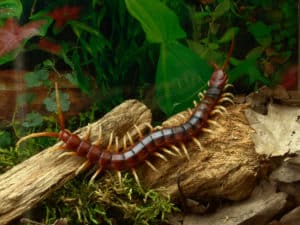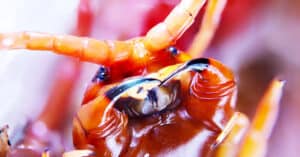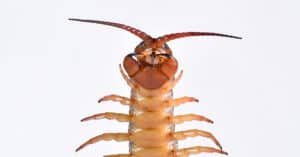Out of the thousands of species of centipedes, house centipedes are the most common. These swift-moving insects with 100 pairs of legs can give even the most stoic person the heebie-jeebies. While they have venom in their front legs, their sting and bite are comparable to a bee’s, and they’re typically not dangerous. If you find yourself with them in your home and you’re looking away for a way to naturally get rid of centipedes, keep on reading.

1. Diatomaceous Earth
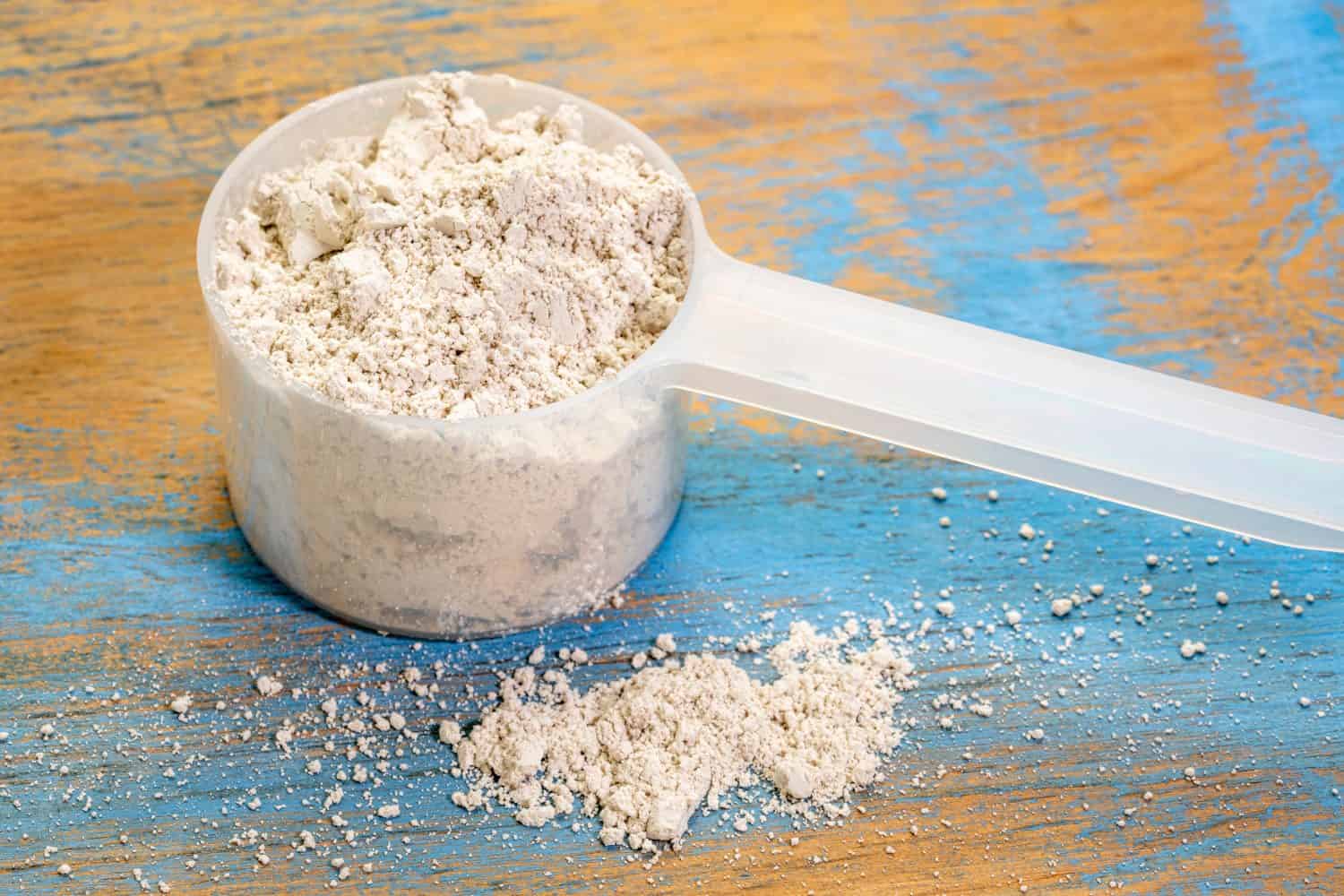
Diatomaceous earth is a naturally occurring rock.
©marekuliasz/Shutterstock.com
One of the most powerful substances in terms of naturally getting rid of centipedes and other creepy crawlers is diatomaceous earth. This substance can be used to eliminate centipedes, millipedes, ants, rats, spiders, and more.
All you need to do is sprinkle a thin layer of diatomaceous earth around the exterior of your home. You can also sprinkle it in crawl spaces, dark corners, and any entryways or window sills. This powder is pretty gnarly in the way that when centipedes ingest it, DE will dry them up from the inside out.
2. Sticky Traps
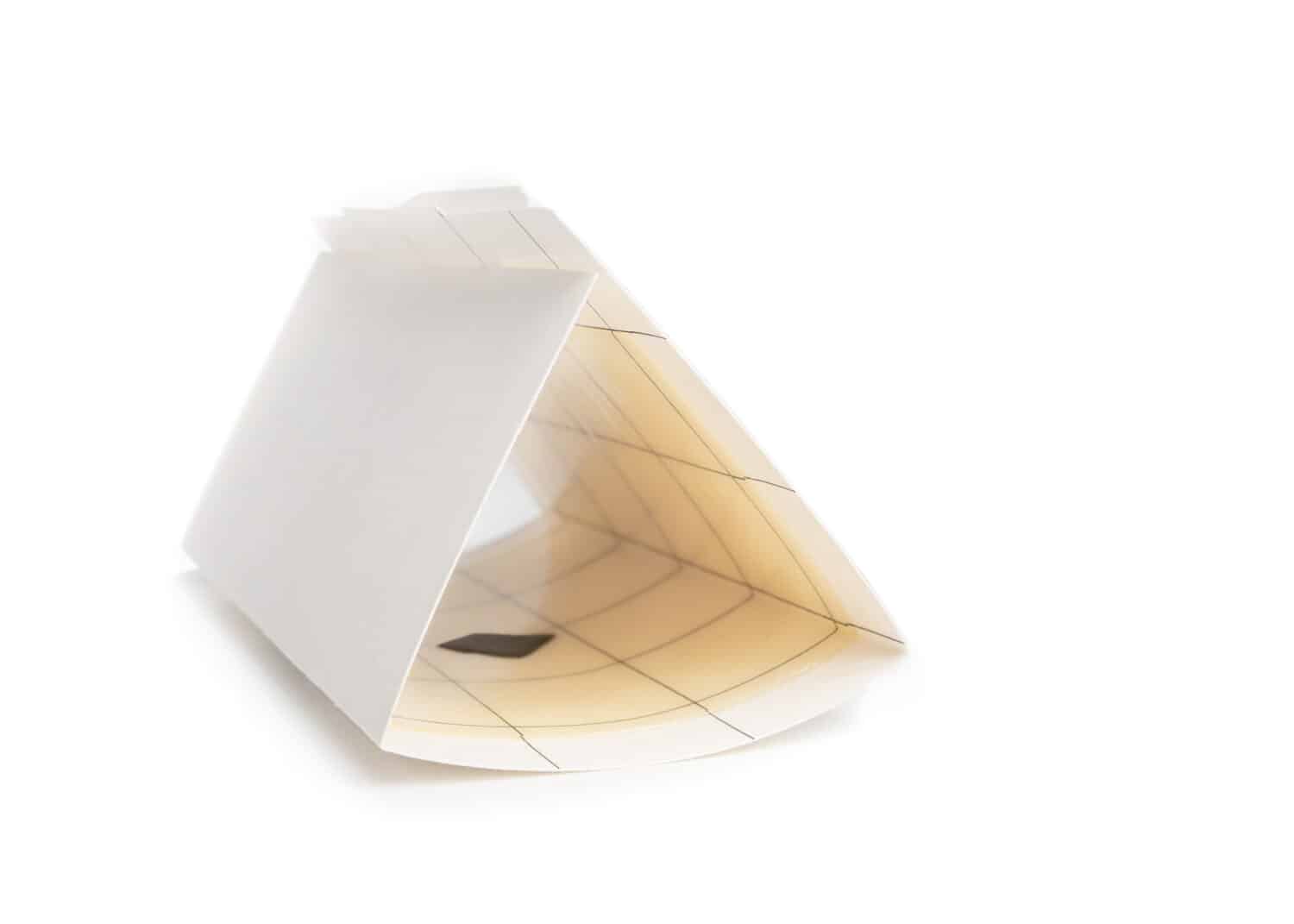
Sticky traps are the best option if you’re dealing with several types of insect infestations.
©sophiecat/Shutterstock.com
Another natural way to get rid of centipedes is by using a sticky trap. These are typically thin pieces of paper or cardboard with an adhesive on one or both sides. Not only are sticky traps great for trapping centipedes, but spiders, gnats, and other bothersome creatures will meet their fate as well.
You’ll want to place sticky traps anywhere in your home that is damp and dark. This is typically where centipedes like to hang out. Be sure to replace the sticky trap after you’ve caught a few centipedes.
3. Essential Oils

Centipedes can be found all around North America.
©rawf8/Shutterstock.com
Essential oils are a powerful way to get rid of a variety of pests naturally including centipedes. It’s important to use scents that these creepy crawly creatures despise. We suggest taking an empty spray bottle with six ounces of water and 25 drops of peppermint oil.
Shake the mixture vigorously and spray it anywhere you think centipedes may wander. This includes baseboards, windows, and doorways. Don’t forget any dark corners or damp areas of your home.
4. Dehumidifier

Dehumidifiers are best used in temperatures over 60 degrees Fahrenheit.
©Mariia Boiko/Shutterstock.com
Another way you can get rid of centipedes naturally and prevent them from coming into your home is by using a dehumidifier. If you keep the moisture level low inside your home, centipedes won’t even want to come inside.
In fact, they can dry out and die if they live in a place with not enough moisture. If you find yourself with centipedes in your home, make sure you always run the exhaust fan in the bathroom when you’re taking a shower or bath.
This will reduce the amount of moisture and humidity. If there are damp places around your home that are hard to access, put packets of silica near them to help absorb any excess moisture.
When a centipede infestation is really bad, block off your sink and tub drains when they’re not in use.
5. Vinegar

Avoid using vinegar near plants, as it can easily kill most foliage.
©iStock.com/Michelle Lee Photography
Because centipedes like dark, damp, moist locations, you will often find them in or around drains. The thought of one of these creatures crawling up from the drain can make the hair on the back of your neck stand up.
A natural way to get rid of centipedes in drains is to pour one and a half cups of white vinegar down the drain. wait half an hour and repeat. This should help keep centipedes away and potentially kill them.
6. Vacuum

Using a vacuum to naturally get rid of centipedes is ideal for people who aren’t looking to kill the creature.
©Valeriy_G/iStock via Getty Images
A quick and easy way to get rid of centipedes naturally is by using a vacuum. All you have to do is quickly suck up these little critters when you see them running around. It is essential that you empty the vacuum canister far from your home and completely off of your property.
You can take things a step further and use one of the other methods on this list to make sure the centipedes don’t have the opportunity to return.
7. Soap Spray

Dish soap can kill fleas, spiders, and other creepy crawlies.
©richwai777/iStock via Getty Images
Another natural way to get rid of centipedes is by using a soap solution. Soap will dry out a centipede if they come in contact with the sticky substance. This is a great option to use if you find these creatures crawling around any of your indoor or outdoor plants.
You’ll need an empty spray bottle, two tablespoons of any standard dish soap, and a gallon of water. Combine everything into the spray bottle and mix well. If you don’t have a spray bottle, you can also use a garden sprayer.
Place the solution along baseboards, dark corners, and around any plants you believe the centipedes are near.
8. Eliminate Food and Housing Resources

Regularly taking out the trash can eliminate a wide variety of household pests.
©PIKSEL/iStock via Getty Images
These creepy crawly insects likely make their way into residential homes for either shelter or food. While you can’t necessarily get rid of their shelter, you can eliminate their food. Centipedes love eating termites, spiders, silverfish, and other centipedes.
If there’s no food for them to eat, they will move on to a new location. Make sure your home is free from other insects and arachnids to keep centipedes at bay. When it comes to shelter, you can help lower the risk of these critters by keeping a tidy home with relatively low humidity.
9. DIY Insecticide

Many insecticides on shelves can contain harmful ingredients, making a DIY solution much safer.
©Sergio Rojo/Shutterstock.com
If you have been noticing buggers around your deck or patio, you can make your own natural insecticide to get rid of centipedes. Luckily, this mixture will work great for millipedes as well. You’ll need an empty spray bottle, a teaspoon of vegetable oil, a cup of rubbing alcohol, and a quart of water.
Mix everything together in the sprayer and shake vigorously. Spray the solution around your garden, patio, or wherever these pests are running around.
10. Boric Acid

Boric acid is a white acid that can irritate the skin and lungs. Be sure to wear proper clothing when using it.
©sulit.photos/Shutterstock.com
Another way to naturally get rid of centipedes is by using boric acid. This is one of the least toxic ways of kicking these critters to the curb. It is essential to wear a dust mask while using boric acid.
You’ll want to take a squeeze bottle and pour in boric acid until the bottle is ¾ full. Then, use the squeeze bottle to dispense the powder around your home. This should be done in corners, crevices, along baseboards, and anywhere you think they may hide.
The boric acid works similarly to diatomaceous earth in the way that it will dehydrate the animal and kill it. Please do not use this method if you have small pets running around your home.
11. Vegetable Oil Spray

Vegetable oil is safe to use around pets.
©Naypong Studio/Shutterstock.com
The second to last method that you can use to naturally get rid of centipedes is by creating a vegetable oil spray. This is ideal for centipedes that are infesting your garden. It involves mixing vegetable oil and dish soap.
When they consume the mixture, the oil will block their airway and the soap dries out their exoskeleton. There’s no way for centipedes to survive this one! Gather a cup of vegetable oil, one tablespoon of liquid dish soap, two cups of water, and a spray bottle.
Mix everything together into a spray bottle, adding the oil last. On a dry day, spray the solution all around your garden and on plants that have been affected by a centipede infestation.
12. Shoes
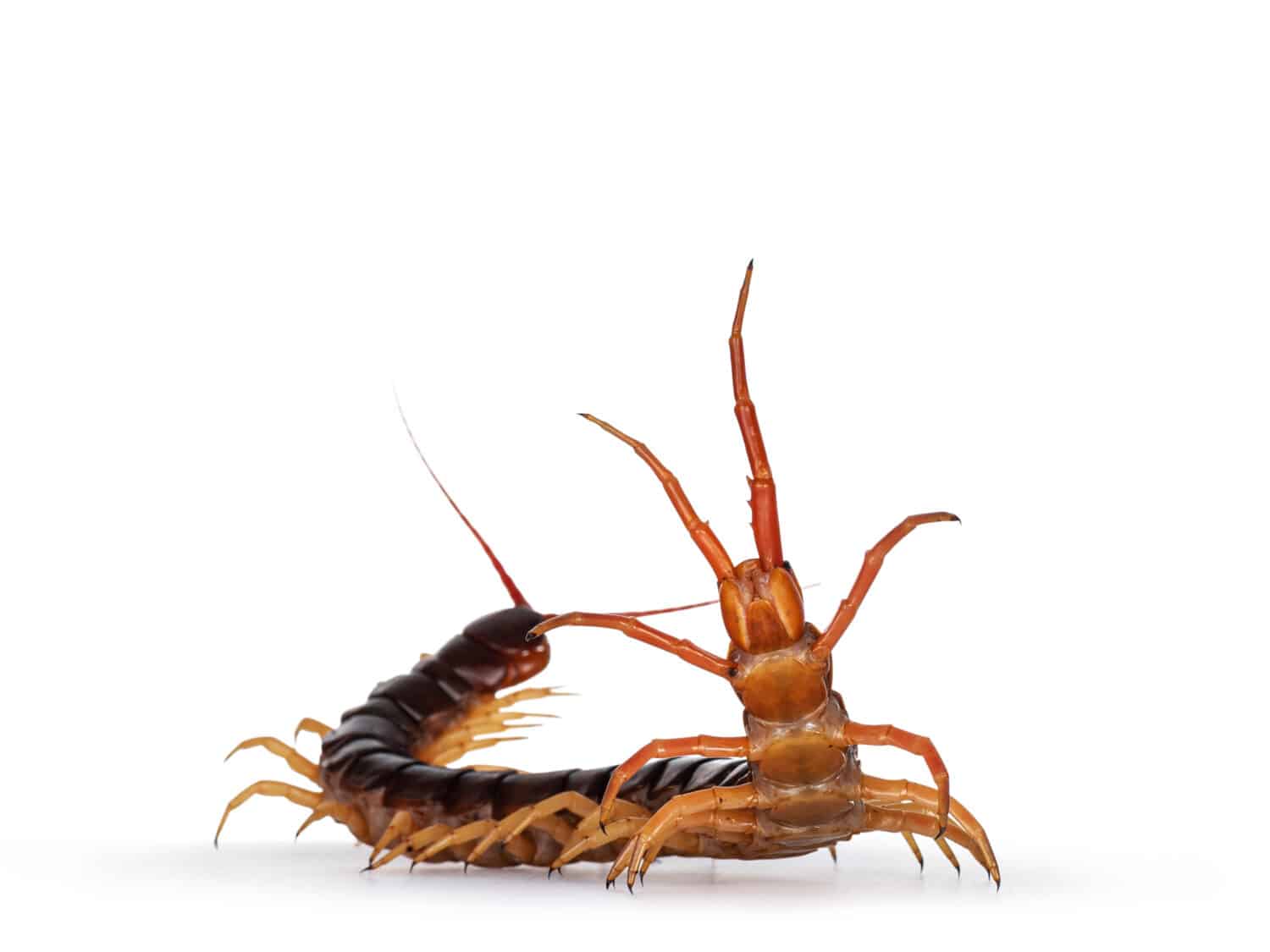
Centipedes can live for up to five years!
©Nynke van Holten/Shutterstock.com
When all else fails, you can use a shoe to eliminate a centipede. Whether you’re holding a shoe in your hand like a fly swatter or you’re stomping around your home killing these insects, it’s sure to get the job done.
This way, you don’t have to buy any extra products or use powders that could be dangerous to your pets around your home. Now all that’s left for you to do is be quick enough to kill the centipedes
The photo featured at the top of this post is © Ron Eldie/Shutterstock.com
Thank you for reading! Have some feedback for us? Contact the AZ Animals editorial team.



